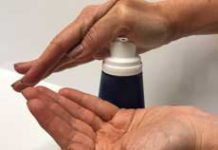The results from a study that aimed to perform serological testing and evaluate SARS-CoV-2 antibody levels in oncological healthcare workers and cancer patients irrespective of COVID-19 symptoms after implementation of institutional safety measures in a large tertiary care hospital in Vienna, Austria indicate low prevalence of anti-SARS-CoV-2 antibodies in both cohorts, thus indicating a lack of immunity against SARS-CoV-2. The findings highlight the need for continuation of strict safety measures to prevent uncontrolled viral spread according Prof. Thorsten Füreder of the Department of Medicine I, Division of Oncology, Medical University of Vienna in Vienna, Austria and colleagues who published their results on 2 September 2020 in the ESMO Open.
The authors wrote that the SARS-CoV-2 seroprevalence in oncological healthcare workers and the cancer patients has significant implications in terms of cancer care delivery and policy-making decisions.
Between 21 March and 4 June 2020, the oncology healthcare workers and cancer patients were tested for total antibodies against SARS-CoV-2 at the Medical University of Vienna. The study team used the Roche Elecsys® Anti-SARS-CoV-2 immunoassay and reactive samples were additionally tested by the Abbott® SARS-CoV-2 IgG test. Oncology healthcare workers had also to complete a questionnaire regarding demographic parameters, travel history and presence of COVID-19 symptoms.
The study team enrolled 62 oncology healthcare workers and 84 cancer patients. In the cohort of oncological healthcare workers, 20 (32.3%) of tested individuals were medical oncologists, 28 (45.2%) oncology nurses and 14 (22.6%) other, e.g. study coordinators. In the patient cohort, most of those tested were on active anticancer treatment (96.4%).
Since the end of February 2020, 26% of the oncology healthcare workers and 6% of cancer patients had symptoms that could be potentially associated with COVID-19. However, anti-SARS-Cov-2 total antibodies were detected in only 2 (3.2%) oncology healthcare workers and in 3 (3.6%) cancer patients. The second assay for anti-SARS-Cov-2 IgG antibodies confirmed the positive result in all oncology healthcare workers and in 2 (2.4%) cancer patients, suggesting an initial assay’s unspecific reaction in only one case.
Specific anti-SARS-CoV-2 antibodies were found solely in individuals after a documented SARS-CoV-2 viral infection, thus supporting the test methods’ high sensitivity and specificity. In persons with a confirmed test result, an active COVID-19 infection was documented by a positive SARS-CoV-2 RNA PCR test.
The authors wrote that although 26% of the oncological healthcare workers reported symptoms potentially associated with COVID-19, only a minority had specific anti-SARS-Cov-2 antibodies. Contrary to oncological healthcare workers, anti-SARS-CoV-2 total antibodies were detected in three asymptomatic cancer patients, but were not confirmed in one patient by a second assay for anti-SARS-CoV-2 IgG antibodies. In general, the prevalence of anti-SARS-CoV-2 antibodies in oncological healthcare workers and cancer patients is low and indicates a lack of immunity against SARS-CoV-2, thus requiring continuation of strict safety measures.
Reference
Fuereder T, Berghoff AS, Heller G, et al. SARS-CoV-2 seroprevalence in oncology health care professionals and cancer patients at a tertiary care center during the COVID-19 pandemic. ESMO Open; Published online 2 September 2020. DOI: 10.1136/esmoopen-2020-000889






